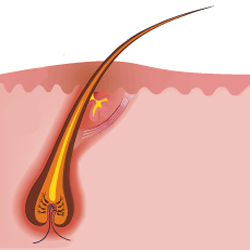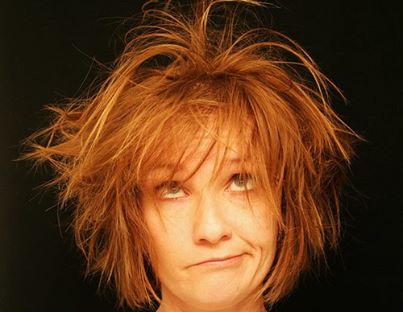Latest press request
Latest media publication
Stem Cells and Hair loss
Stem cells are a type of cell that have the ability to develop into many different types of cells in the body. This unique ability makes them a valuable tool in the field of medicine, as they have the potential to be used to treat a wide range of diseases and injuries.
There are two main types of stem cells: embryonic stem cells and adult stem cells. Embryonic stem cells are derived from human embryos and have the ability to develop into any type of cell in the body. This makes them incredibly versatile and useful for medical research, but their use is controversial due to ethical concerns.
Adult stem cells, on the other hand, are found in various tissues throughout the body and have a more limited ability to differentiate into different types of cells. While they are not as versatile as embryonic stem cells, they are still valuable for medical research and have been used in a variety of treatments.
One of the most exciting potential uses of stem cells is in the field of regenerative medicine. By using stem cells to replace damaged or diseased cells, it may be possible to regenerate tissues and organs in the body, potentially providing new treatments for conditions such as heart disease, diabetes, and spinal cord injuries.
Stem cells are also being studied for their potential use in cancer treatment. By manipulating stem cells, researchers hope to be able to create immune cells that can target and destroy cancer cells, potentially providing a new way to fight the disease.
While there is still a lot of research that needs to be done in order to fully understand the potential of stem cells, the possibilities are incredibly exciting. As our knowledge of stem cells continues to grow, it is likely that they will play a key role in the future of medicine.
There is some evidence to suggest that stem cells may be useful in the treatment of hair loss. One study, published in the journal Stem Cells Translational Medicine, found that stem cells may be able to regenerate hair follicles, which could potentially be used to treat conditions such as male pattern baldness.
The study, which was conducted on mice, found that stem cells were able to differentiate into the cells that make up hair follicles. When these stem cells were transplanted into the skin of the mice, they were able to regenerate hair follicles and produce new hair.
While this study is promising, it is important to note that it was conducted on mice, not humans. More research is needed to determine whether these findings can be replicated in humans and whether stem cells can be used effectively to treat hair loss.
Additionally, there is some debate about the ethics of using stem cells for cosmetic purposes, such as treating hair loss. This is an important consideration that should be taken into account as research in this area continues.
In conclusion, while there is some evidence to suggest that stem cells may be useful in the treatment of hair loss, more research is needed to fully understand their potential and to determine whether they can be used effectively in humans.
Chen, J., Zhang, Y., Wu, J., Wang, Z., & Cotsarelis, G. (2018). Regeneration of hair follicles using human pluripotent stem cells. Stem Cells Translational Medicine, 7(10), 1141-1152.
Rosemary Oil Facts
Rosemary Oil and Hair
Research shows that rosemary oil may benefit well-being by relieving pain, relieving stress, improving your mood, fighting baldness, and acting as an anti-inflammatory. Studies have proven that rosemary oil can do much to boost free-radical- scavenging activities, as well as reducing the levels of cortisol, all of which can protect the human body against severe diseases caused by oxidative stress. The oils extracted from rosemary helps to boost antioxidant activities that show up as strong tools to combat diseases and infections.
Rosemary oil helps promote hair growth and hair thickness because it feeds the follicles. Combine several drops of rosemary oil, one tablespoon of castor oil, and two tablespoons of coconut oil. Rosemary essential oil does more than help boost hair growth, it can be used to treat Alopecia Areata and Androgenetic Alopecia (hair loss associated with female-pattern or male-pattern baldness). Diluted and used topically, rosemary essential oil is known for stimulating hair growth, relieving pain, soothing inflammation, eliminating headaches, strengthening the immune system, and conditioning your hair so that it looks and feels healthier.
Used in aromatherapy, Rosemary oil helps to lower stress levels and nervous tension, enhance mental activity, promote clarity and intuition, alleviate fatigue, and support respiratory function. Often used to alleviate mental fatigue and stress in folk medicine, diffusing Rosemary Essential Oil may help to boost your mood. Aromatherapy with rosemary may help decrease muscle strain, ease mental fatigue and stomach tension, and improve memory and energy levels.
One study suggests that rosemary, combined with other pleasant-smelling oils, can reduce cortisol levels and help lower anxiety. One study found that sniffing rosemary oil prior to tests helped lower stress levels during testing as well as the general levels of anxiety among nursing students (22). Another study found that using lavender and rosemary essential oils in pillowcases reduced stress during test-taking among graduate nursing students.
One study showed that a group of people who smoked rosemary essential oil (Rosmarinus officinalis) for several weeks noticed improved cognitive function and significantly increased mental alertness. The results showed that the inhalation of Rosemary essential oil reduced stress levels through decreased serum corticosterone levels and increased in-vivo dopamine levels in the brain. Scientific studies have demonstrated rosemary oils abilities to aid many common and chronic health problems,
including hair loss, liver function, high corticosterone levels, stress, cognition, and memory problems such as Alzheimer’s disease and dementia.
While its essential oils are not used in skin care as much as they are used for hair care, rosemary oil has powerful
antimicrobial and antiseptic qualities that may help you manage eczema, dermatitis, oily skin, and acne. When used in a form of massage oil, rosemary oil helps to alleviate cramps, pain, cramps, rheumatism, arthritis, and strained necks.
Rosemary is a rich source of antioxidants and anti-inflammatory compounds thought to help strengthen the immune system and enhance blood circulation.
Hypnosis and Hair Loss
Therapeutic Hypnosis And Hair loss
Hypnotherapy has absolutely no side effects, as well as decreases overall stress and anxiety levels in clients. In this case, not only is hypnotherapy effective at promoting significant hair growth, it is a non-side-effects method to decrease stress and other symptoms of alopecia areata.
We can use Hypnosis to bring about both psychological and physiological changes, so, naturally, we can use it to promote hair growth. As you may remember, the power of hypnosis for hair growth can be in part due to the effect that it has on your stress levels. According to researchers, the hypnotically treated patient can experience a regular process in growing his or her hair.
Lists on Natural Hair Growth usually just mention that hypnotherapy may cause changes in hair, without explaining why. We have also briefly noted the potential for increased hair growth through increased blood flow to the hair follicles, but even more importantly, there is an effect hypnosis may have on the subjective experience you get from hair. Note that you may even want to combine hypnosis with other treatments for hair loss.
Stress-related hair loss is usually temporary, so it is possible to treat it through hypnosis. There are some people who find their hair does not regrow, regardless of the underlying cause, but it is always beneficial to use relaxation techniques to help you cope with your anxiety, in order to help lower the risk of experiencing further hair loss related to stress, as well as reduce anxiety you are experiencing due to hair loss. If stress and anxiety are a primary reason why you are losing your hair, then decreasing this stress or anxiety may help you get your hair back.
The relaxed state created during a hypnotherapy session allows the power of hypnotic suggestions to dispel any negative, limiting beliefs a person might have about their hair and hair loss. Further analysis has shown that while the patient is in a relaxed hypnotic state, his or her negative beliefs regarding his or her hair loss are replaced with positive beliefs. While in a hypnotic state, we can tell the subconscious mind to block out all fears of losing hair, feeling just calm, and peaceful, and knowing it is easier to encourage and maintain long, thick, strong, beautiful hair.
The thing to keep in mind though, about hypnosis, as well as any therapy, be it medical or holistic, is that it is more effective if used together with something else. While it is true that hypnotherapy can reverse hair loss, we still lack enough evidence to know for sure, or believe in with any degree of confidence. Another issue is that, for ethical reasons, most patients in this trial were already using conventional treatments for their hair loss.
Twelve participants showed a marked improvement following the hypnotherapy treatments, and four had completely lost their hair. After three to eight sessions, the patients with alopecia (baldness) showed a substantial increase in their hair growth (75%-100%), as well as decreased levels of overall anxiety and depression, which also might have caused hair loss. Alongside hypnosis treatment to restore hair, participants were given therapies that helped alleviate stress.


